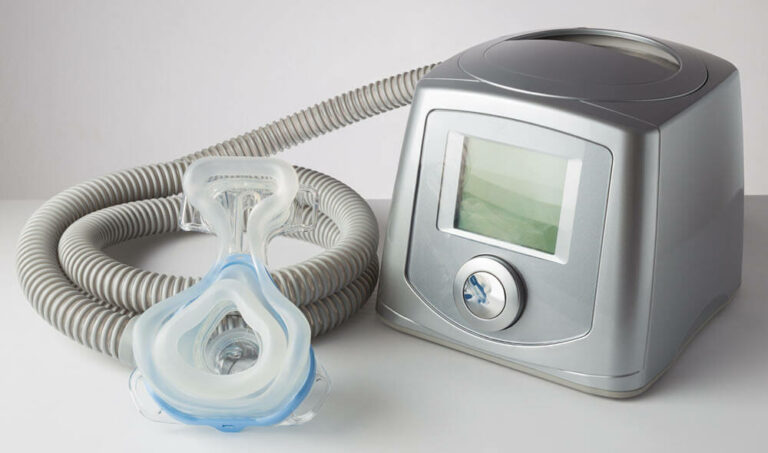Do you really burn calories while you sleep? Most people believe that you only burn calories while doing some physical activities. We can say that this is only partly true, because you actually burn calories when your brain is engaged. So, naturally, you burn more calories when you’re awake, however, the number of calories that you burn when you sleep shouldn’t be disregarded.
Our body needs energy to support blood circulation, growth, body temperature regulation, cellular repair, and breathing, and this energy is known as basal metabolic rate, aka BMR. While the body is doing these processes, it also burns calories, and this process doesn’t stop during nighttime, hence some calories are lost while you sleep as well. If you want to know how many calories your body burns when you sleep, read on.
What Is BMR?
It’s very important for your body to constantly use energy for normal functioning and staying warm. Even though your body burns some amount of calories due to daily physical activities, basal metabolism accounts for up to 80% of all energy expenditure.
Basal metabolism refers to all body processes that keep you healthy and alive, including: blood circulation, breathing, cellular repair and growth, nerve and brain function, and body temperature regulation.
In fact, all of these basal metabolic processes need a continual energy supply, therefore your body constantly burns calories, even when you’re sleeping or just resting.
Basal metabolic rate, aka BMR, also known as resting metabolic rate, is, in fact, the number of calories that your body burns on a daily basis because of the basal metabolism. Basically, it’s the number of calories that an average person will use per day if they’re just resting and don’t do any physical activity. There are numerous different factors that have an impact on your BMR, such as body size, gender, genetics, and age.
Determining the Amount of Calories You Burn When You Sleep
In order to determine the number of calories your body burns while you’re asleep, you first need to calculate your BMR. You need to keep in mind that the calculation of BMR isn’t straightforward due to the fact that there are various factors that influence it.
If you want to measure your BMR accurately, you’ll need special equipment which will determine the amount of oxygen you inhale and exhale over a specific period of time.
However, it’s possible to approximately calculate your BMR with the use of the so-called Harris-Benedict equation. This equation takes into account your age, gender, body mass, and height, and there’s a different equation for women and for men.
The equation using inches for height and pounds for weight is:
- 655.1 + (4.35 x weight) + (4.7 x height) – (4.7 x age) = BMR for women
- 66 + (6.2 x weight) + (12.7 x height) – (6.76 x age) = BMR for men
The equation using centimeters for height and kilograms for weight is:
- 10 x weight + 6.25 x height – 5 x age – 161 = BMR for women
- 10 x weight + 6.25 x height – 5 x age + 5 = BMR for men
These equations will give you the amount of calories that your body burns daily, so now we need to calculate the amount of calories that your body burns while you’re asleep. Your body isn’t physically active during sleep, so the BMR is approximately 15% lower when you sleep than when you’re awake.
So, in order to calculate the amount of calories that you’ll burn while you sleep, you need to calculate your BMR per hour and multiply that by the number of hours that you sleep, and then reduce that figure by 15%.
If you want to calculate the amount of calories that you’ll burn while you sleep just use the following formula:
Amount of calories burned when you sleep = (BMR / 24) x hours of sleep x 0.85
It’s especially important for you to remember that these equations give only a rough calculation of your BMR and calories burned while sleeping.
Factors That Determine The Number of Calories You Burn When You Sleep
The amount of calories that you’ll burn during sleeping isn’t a constant number. How your body burns calories is directly influenced by various internal and external factors. The following list explains some factors and their impact on resting metabolic rate when you sleep.
Sleep Cycle
Basically, sleep occurs in two main sleep stages, Rapid Eye Movement (REM) and Non-Rapid Eye Movement (N-REM). During one night, you might go back and forth between both sleep stages around three to four times. When you’re in the N-REM sleep stage, the activity of your brain is slower, resulting in a slower metabolism. The N-REM sleep stage occurs in three additional stages with increased intensity, leading to the Rapid Eye Movement sleep stage.
On the other hand, when you’re in the REM sleep stage, the activity of your brain is much faster, resulting in faster metabolism and burning extra calories. These shifts in resting metabolic rate have a direct impact on the number of calories burned. Increased brain activity means that more calories will be burned during the REM sleep stage than N-REM.
Body Temperature During Sleep
The temperature of your body naturally decreases to facilitate sleep. Therefore, if you keep your room cooler, you can kick this process into motion, helping you fall asleep much faster and lose some calories. This is due to the fact that your body will need to burn more calories if it’s cold in order to stay warm. Being too hot or cold can be uncomfortable, and it may disrupt your sleep (resulting in sleep deprivation), so the ideal room temperature for a good night’s sleep is from 60 to 67 degrees Fahrenheit (from 15.5 to 19.4 degrees Celsius).
Sleep Deprivation
Sleep deprivation might worsen existing conditions, particularly if your aim is weight loss or cutting down on calories, because not getting enough sleep can increase the levels of leptin and ghrelin, the hormones that can cause weight gain and overeating. So, not getting a good night’s sleep can falsely enlarge your appetite, suppress your fullness indicator, and result in increased calorie intake.
Moreover, if you’re sleep-deprived, you can be prone to make less healthy choices. For instance, you might take a large coffee, feel more intense sugar needs, and eat more carb-heavy food. All of these are indicators that your body is trying to compensate for lack of sleep.
Sleep deprivation can cause increased levels of cortisol, the hormone that sends signals to your body that it’s time to preserve energy, which makes your body keep body fat.
On the other hand, getting enough sleep every night can help in burning and keeping the calories off. Spending more time in deep sleep and the REM sleep stage especially ensures that your body fat won’t build up.
Late-Night Eating
Here is some good news for you, eating late doesn’t cause slower metabolism. Eating before you go to bed can cause a temporary increase in your metabolism throughout what’s called thermogenesis. So you don’t need to be concerned if you eat after 8 pm. Consuming food after 8 pm doesn’t magically cause weight gain – it’s the mindless eating that does. So, eating normally before going to bed is a good idea, however, eating large meals isn’t, as they’ll disrupt your sleep cycle.
Medical Conditions
In some cases, even when you observe a healthy diet and exercise, your resting metabolic rate while you sleep can be slower. When this occurs, certain health conditions, such as Cushing syndrome and hypothyroidism, can be a cause for your slower metabolism. In this case, you need to visit your doctor for recommendations and evaluations.
Muscle Gains
The more muscle mass you have, the more calories your body burns. So fitting in your everyday exercise, particularly strength training, will result in burning more calories while you sleep.
Diet
A healthy diet might be helpful in increasing your quality of sleep. Improving your healthy dietary patterns and your body’s muscle-to-fat ratio can cause extra calories to be burned.
Bottom Line
So, even when you’re sleeping or resting, your body is constantly burning calories supporting a wide range of vital functions in your body, which we refer to altogether as the basal metabolism. Basal metabolism includes all of the processes which keep your body healthy, functioning, and alive, including blood circulation, brain function, and breathing.
Basal metabolic rate is the number of calories that your body burns every day because of the basal metabolism, and it depends on several different factors such as your body size, genetics, gender, and age. Therefore, everyone has a different BMR.
By using a formula that takes into account your age, height, gender, and body weight, you can calculate your BMR. This BMR value will help you to calculate the number of calories that you burn when you sleep.






